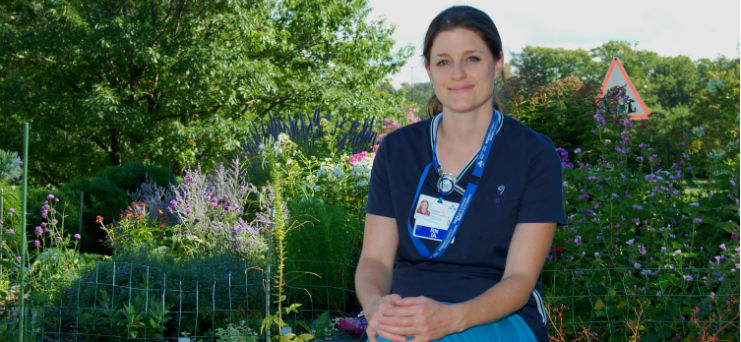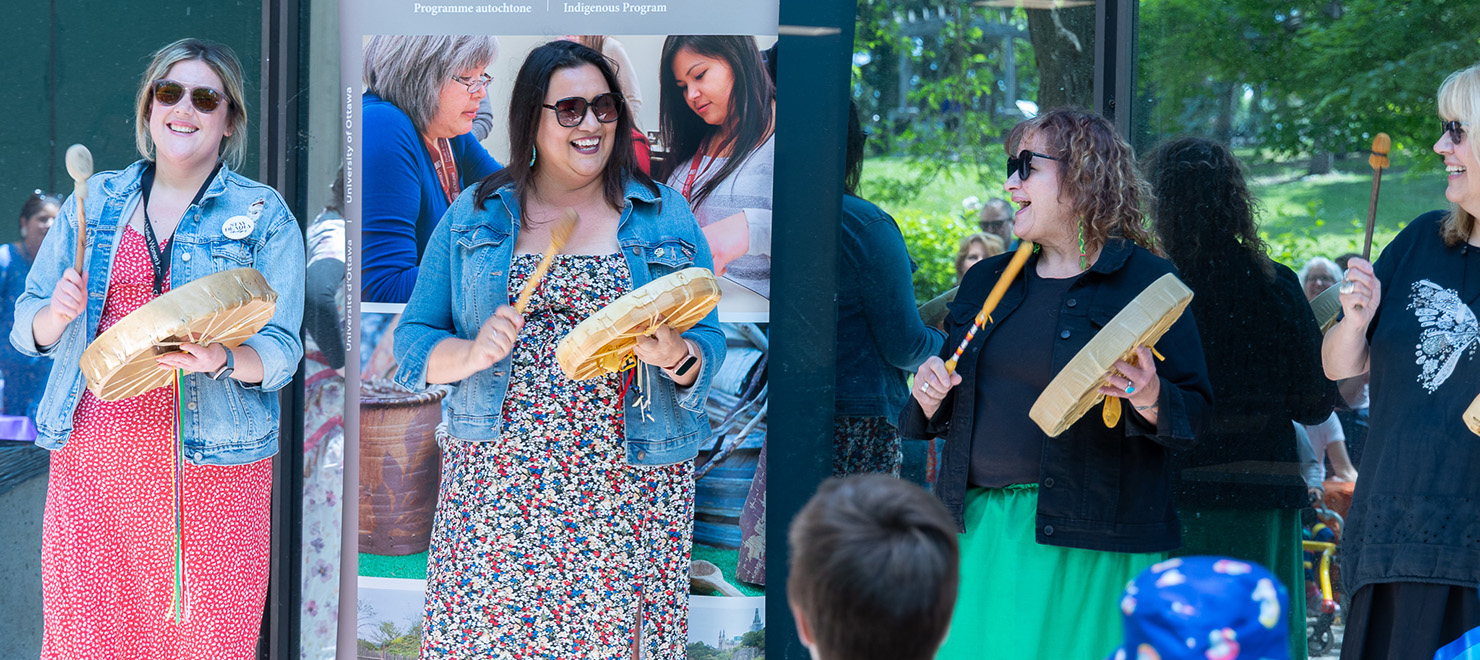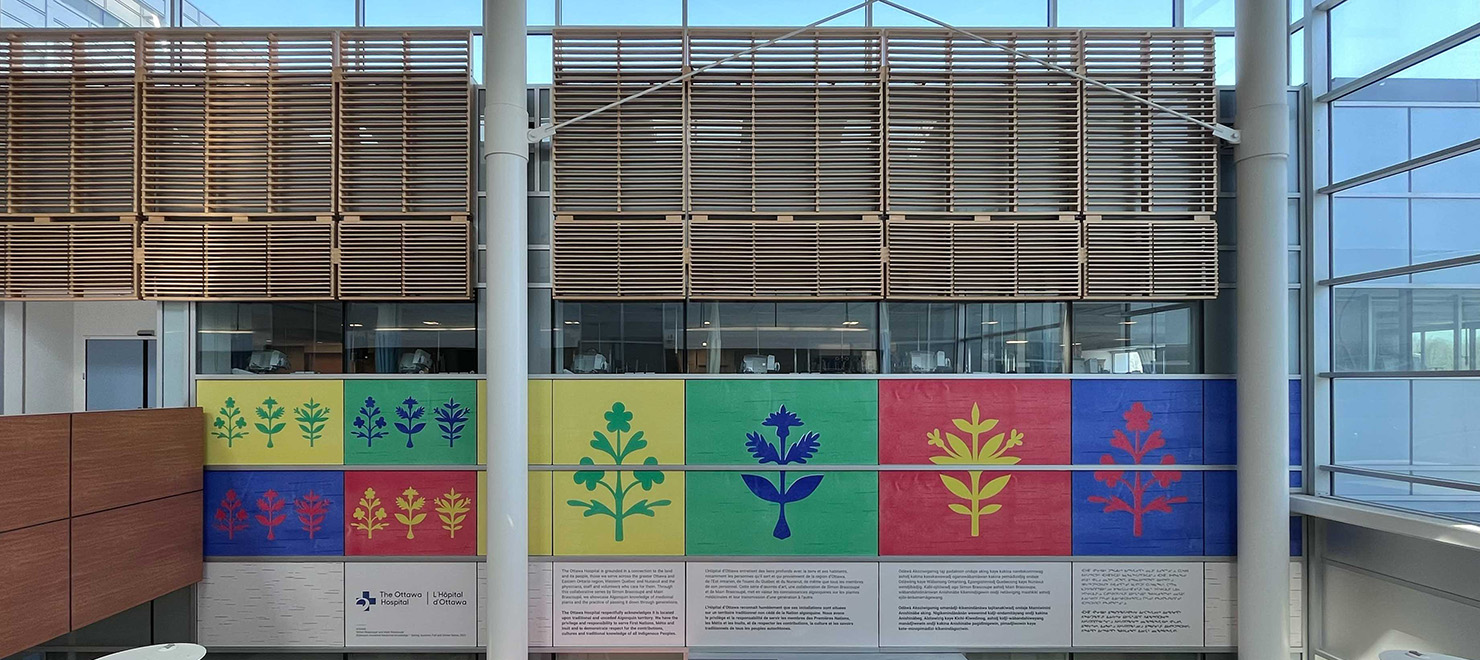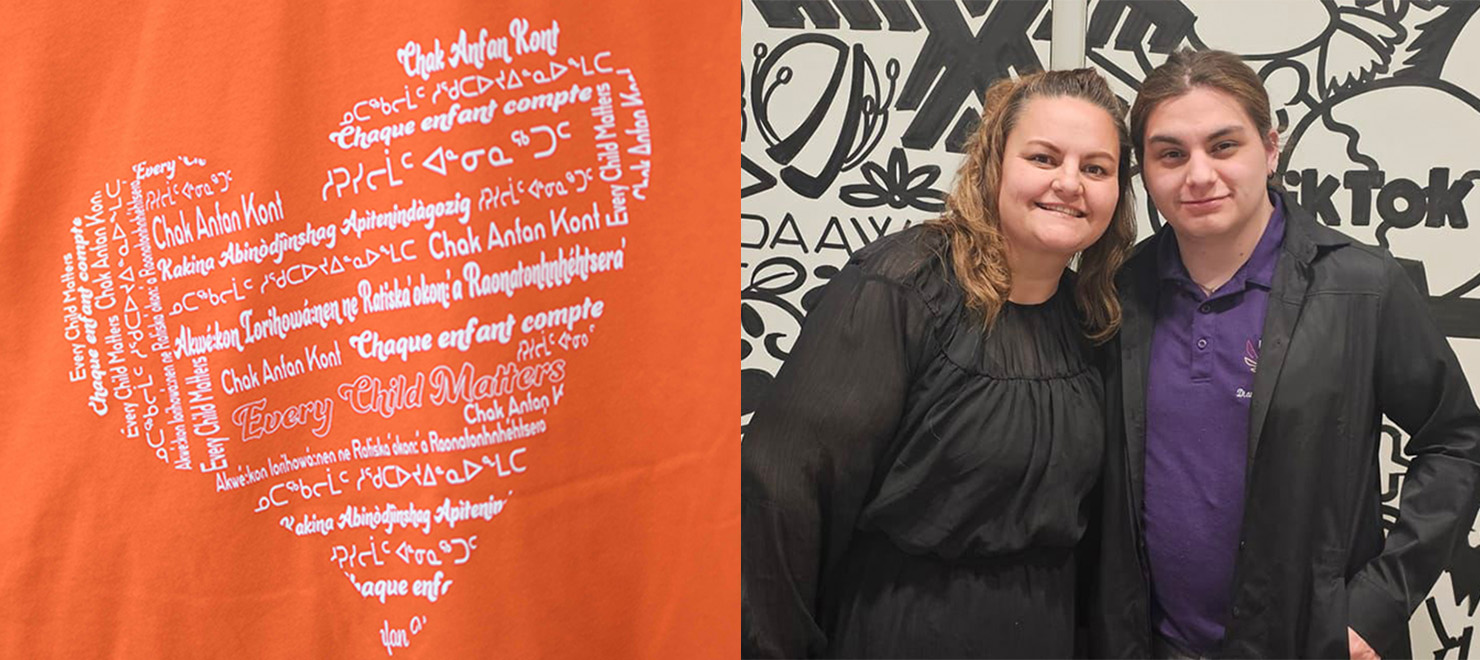
Linda Ferro-Chartrand, RN at the General Campus Intensive Care Unit, often accompanies patients who are able to leave the unit to wellness areas such as the Butterfly Garden, between the General Campus and the Children’s Hospital of Eastern Ontario.
Fresh air, open space, and warm sunlight peeking through leaves swaying in a cool breeze. Sometimes taking a walk outside or eating your lunch at a picnic table is just the right medicine – not only for staff, but also for patients.
Staying indoors for days on end, hooked to various machines – deprivation can take a serious toll on patients’ overall wellness.
“Getting patients outside for a while can help them feel like they’re not in a hospital any more. It gives them the break they need,” said Linda Ferro-Chartrand, RN in the General Campus Intensive Care Unit.
Research has found that experiencing nature is directly associated with improved mental health, so wellness areas around the hospital are vitally important. That’s why the new campus will have space allocated for greenspace, gardens, walking paths and contemplative areas. The hospital has committed to an open and transparent engagement process with the Ottawa community to determine how these natural spaces will look at the new campus, among other important issues.
“When patients can see something other than the same four walls of their rooms, it’s good for them,” said Ferro-Chartrand. “Getting some sun and fresh air can really boost their mood and change up their thoughts.”
When Stanford University researchers studied participants after they had experienced a walk through nature, they reported lower levels of rumination – repetitive thoughts focused on negative aspects of the self, a known factor for mental illness – and reduced neural activity in the sgPFC, an area of the brain linked to risk for mental illness.
Calming environments can inspire the sense of being away, a mental break that can transform negative psychological states to more positive ones. For staff, this means restoration from attention fatigue, which happens after working on tasks that require long periods of directed attention. For patients, experiencing nature can affect the number of symptoms they feel, their perceived general health, and their tendency to fall into mental states of despair.
“I’m definitely going to try and get out more myself and really take advantage of our wellness areas,” said Ferro-Chartrand.
Wellness areas are not only restricted to the outdoors. Kansas State University researchers found that patients recovering from surgery with live plants in their rooms had significantly lower systolic blood pressure, ratings of pain, anxiety and fatigue than patients in the control room without plants.
Contact with nature contributes to a healthy workplace, and has a proven major effect on staff. A study at the University of Florida found that staff who took breaks outdoors recorded significantly reduced perceived stress and an overall decrease in health complaints.
The World Health Organization predicts depression will be the second greatest cause of ill health globally by 2020. When simple acts like sitting in a garden are proven to benefit mental health, it’s important for staff to take the necessary steps to care for themselves as well as their patients.
The hospital presented a draft architectural concept of its new campus at a public open house in January. You can learn more and give feedback at GreaterTogether.ca.

Support patient care and research at
The Ottawa Hospital
You might also like…
Celebrating the summer solstice and National Indigenous Peoples Day: A photo essay
The summer solstice has deep spiritual and cultural significance for Indigenous communities around the world. Last week, we joined CHEO and uOttawa for a special celebration to mark this important time of year, and to recognize the rich cultures of First Nation, Inuit and Métis Peoples.
A guide to services at The Ottawa Hospital for Indigenous patients and families
At The Ottawa Hospital, we are committed to providing culturally safe care for First Nation, Inuit and Métis patients and families. We are working with Indigenous partners to identify ways we can make your time in hospital more welcoming. Here are some of the ways we’re doing that now.
For the community, by the community: Building a new hospital campus together
The Ottawa Hospital’s commitment to enhancing patient and visitor experience is at the core of planning for a new hospital campus – a space that will be shaped by the very people it serves.
A new guide to navigating your mental health
The Ottawa Hospital has partnered with YouTube to create an important series of videos where health-care professionals offer expert guidance to help you or a loved one navigate mental health challenges.
The place to be: The Ottawa Hospital recognized as one of Canada’s most admired corporate cultures
The Ottawa Hospital (TOH) has been named one of Canada’s most admired corporate cultures. Guided by compassion and commitment to patient care, TOH has developed a workplace culture that inspires confidence and trust in our employees, patients and family members.
More than a shirt: Orange shirts support healing and community
Pamela Meness, owner of Diamond Phoenix Creations, the Kitigan Zibi-based supplier of The Ottawa Hospital’s Every Child Matters orange t-shirts, says her business is about healing and community.


 To reset, hold the Ctrl key, then press 0.
To reset, hold the Ctrl key, then press 0.





